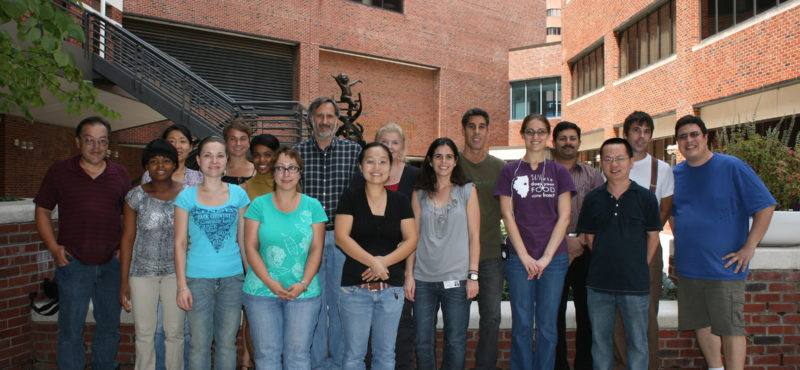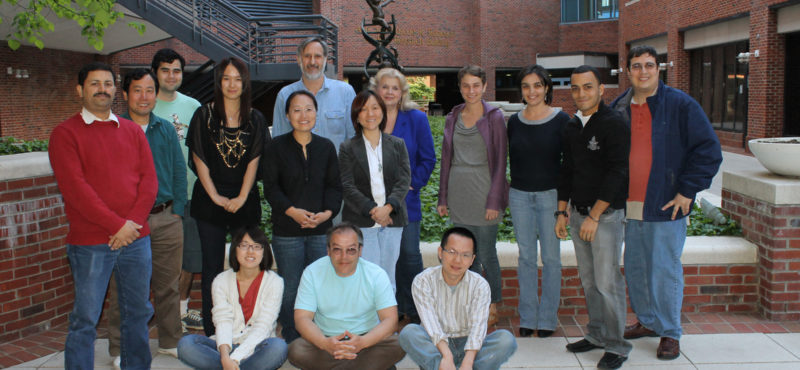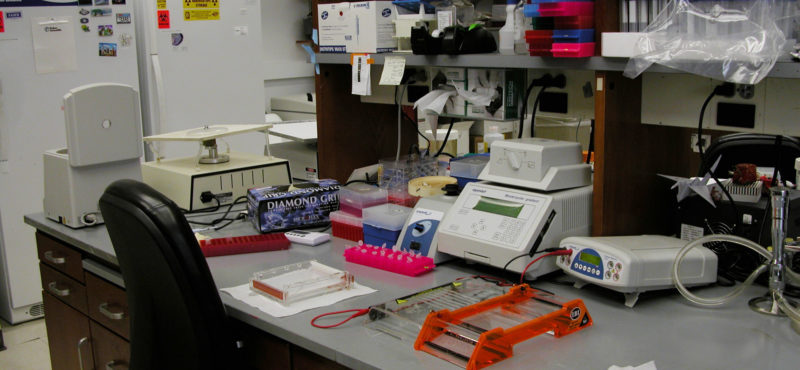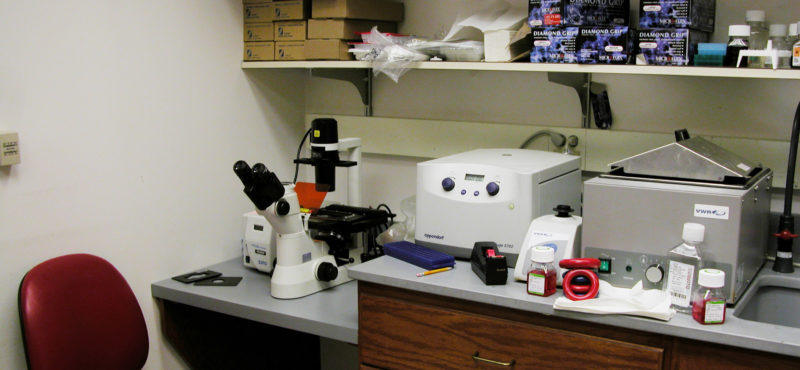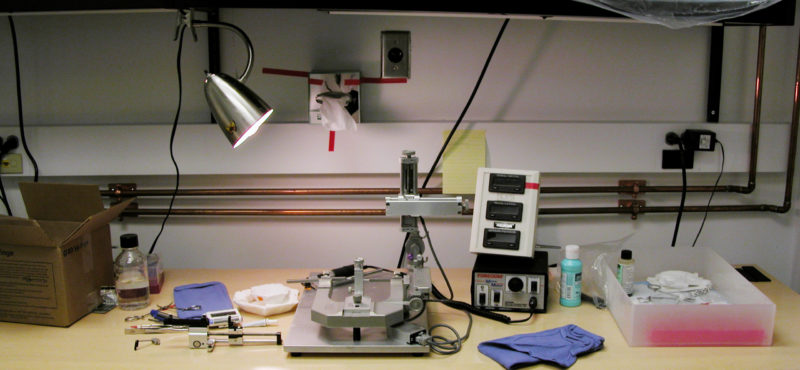My lab is studying fascinating proteins – G proteins-coupled receptor kinases (GRKs) and arrestins – and their role in regulating responsiveness of neurotransmitter receptors in the brain of living animals. We are interested in the role of arrestins and GRKs in shaping acute signaling responses, but we particularly want to understand how these proteins are involved in long-term neural plasticity. Arrestins and GRKs are an important part of a regulatory system designed to adjust the receptor responsiveness to changing demands. If anything happens to these proteins as a result of a disease or drug consumption, this fine-tuning would be compromised, and neurons might loose their ability to respond appropriately to stimulation. Several brain diseases that could involve malfunction of the GRK-arrestin system come to mind:
- Parkinson’s disease and motor fluctuations caused by L-DOPA therapy;
- Drug addiction, e.g. addiction to psychostimulants;
- Schizophrenia;
- Depression.
These pathologies are of interest to my lab. The good new is that manipulation of arrestins and GRKs expression and/or function restores proper regulation of the receptor function, which makes these proteins attractive therapeutic targets for many neural disorders. All we need to do now is to figure out how this manipulation is best accomplished.
